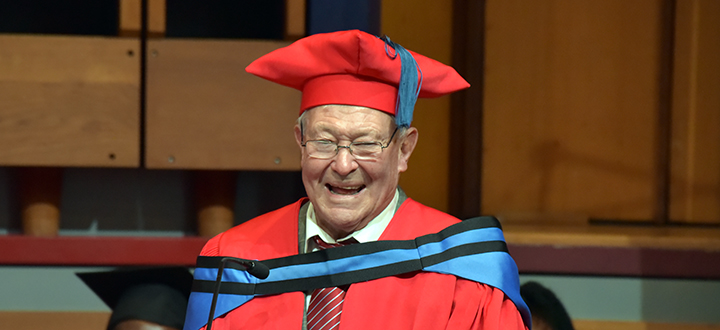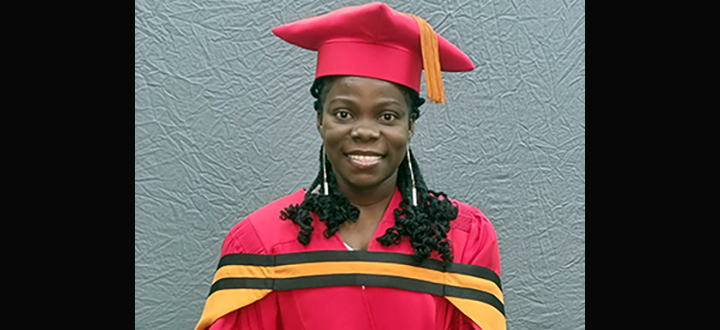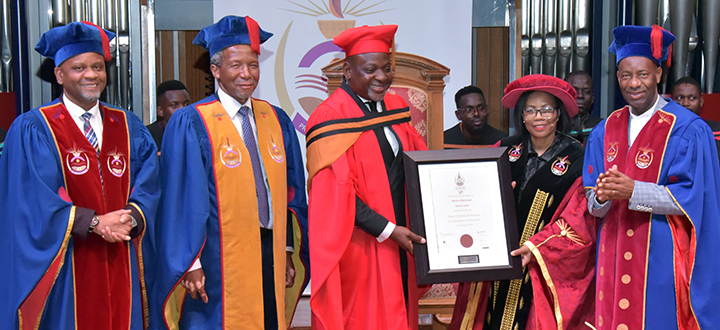Institute for Social and Health Sciences (ISHS)
Continuing the struggle for social justice: 14th Annual Peace, Safety and Human Rights Memorial Lecture

On 13 March 2019, the Unisa College of Graduate Studies and its Institute for Social and Health Sciences (ISHS) held its 14th Annual Peace, Safety and Human Rights Memorial Lecture at the Apartheid Museum in Johannesburg. The Unisa ISHS had the privilege of hosting Ms Sibongile Mhkabela, CEO of the Nelson Mandela’s Children Foundation, as the keynote speaker, and Alison Lazarus, Sam Moodley, Ayanda Kuzwayo and Ruwayda Halim, co-authors of the book Time to Remember: Reflections of Women from the Black Consciousness Movement, in the conversational panel that followed the keynote. This lecture, located within current national dialogues around decoloniality, traced the continuities of apartheid and coloniality within the context of deepening inequality, poverty and power imbalances, and emphasised the importance of continuing struggles towards social and epistemic justice.
The lecture draws on the legacies of Abdulah Omar and Joe Moabi, who fought an uncompromising battle against inequality and oppression and embodied compassion, self-respect, and dignity despite being faced by momentous struggles. Their legacies remind us that the fight against oppression and inequality consistently requires renewed commitment to equality and freedom, and that we need to guard against complacency.
Sibongile Mkhabela’s contribution traced the continuities of apartheid and coloniality. She stated that the undoing of the legacy of colonialism and apartheid “must be… systemic, intentional, focused and uncompromising.” In doing this, we will “restore the humanity of both white and black South Africans.” Ms Mhkabela then referenced South Africa’s democracy, stating that while there has been movement towards transformation through our Chapter 9 institutions, ultimately “negotiated settlements turned the revolutionary manifesto into a watered-down policy of reforms and compromises”. She argued that the current political landscape in South Africa lacks of truly transformative policy, and reflects elements of governance from apartheid and colonial powers. Resultantly, South Africa remains in the grip of apartheid and coloniality, now by “choice and for expedience”. Ms Mhkabela concluded her lecture with a call for people to step back into their power, quoting Chris Hani: “If you want peace, then you must struggle for social justice”.
The panellists continued this critical conversation through sharing their own narratives of resistance, as captured in the book Time to Remember: Reflections of Women from the Black Consciousness Movement. These stories located the speakers within the Black Consciousness Movement, and celebrated feminist narratives of the liberation struggle. The dialogue also emphasised how South Africa’s history continues to have an indelible impact on the realities of South Africans, and that change needs to come from the people, not only from government.
The panel engaged the audience, asking, “What is oppressing us? What is holding us back?”, prompting a lively discussion that cited patriarchy, racism, coloniality, internalised oppression, as well as the imperative for decolonialising action. The audience concurred that liberation comes from within. The panel members concluded: “We need to speak truth to power and truth to each other” and called for coordinated social mobilisation.
It is Unisa's privilege to continue to memorialise the legacies of Dullah Omar and Joe Moabi through hosting speakers at these annual lectures such as Sibongile Mhkabela, Alison Lazarus, Sam Moodley, Ayanda Kuzwayo and Ruwayda Halim who continue to strive for the realisation of human rights, freedom of speech and humanism.
Publish date: 2019-03-13 00:00:00.0

 Community champion and agricultural entrepreneur extraordinaire honoured by Unisa
Community champion and agricultural entrepreneur extraordinaire honoured by Unisa
 Ghanaian-born Swede earns PhD in Information Sciences from Unisa
Ghanaian-born Swede earns PhD in Information Sciences from Unisa
 Unisa awards honorary doctorate to exemplary philanthropist and entrepreneur Collen Tshifhiwa Mashawana
Unisa awards honorary doctorate to exemplary philanthropist and entrepreneur Collen Tshifhiwa Mashawana
 Inhlanyelo Hub explores financing and sustainability at the International Conference on Business Incubation
Inhlanyelo Hub explores financing and sustainability at the International Conference on Business Incubation
 Unisa remains anchored among the waves
Unisa remains anchored among the waves